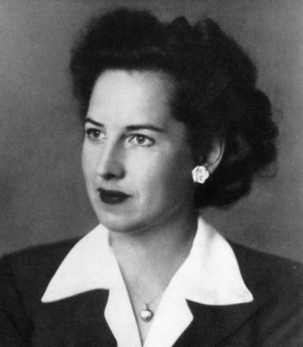
Of all the attractions one could see in London, my favorite was the underground bunker of England’s World War II leader, Winston Churchill. Humanly speaking, great things took place in that bunker.
The Nazis tried to bomb it to kill Churchill. But the pugnacious Churchill would “never, never, never give up” (one of his frequent and favorite statements). His was human perseverance at its best in the best of causes. Churchill was a great man.
But so were the people who served him, making his productivity possible. Churchill had a number of secretaries; one was available wherever he was, day and night. One of them was named Elizabeth Layton.
What caught my eye and mind in the bunker was the picture of Elizabeth with a couple of sentences about her service:
“Elizabeth Layton [Nel] was one of Churchill’s personal secretaries from 1941-1945. She frequently took dictation from him for his speeches, telegrams and minutes.“
Those are the facts – she took dictation, but an internet article tells us what was going on emotionally. “Churchill disliked having to adjust to changes among his close staff. He was used to a work schedule in familiar surroundings that ran with the precision of a clock. For this reason in the first weeks after the start of her job on 5 May 1941, Elizabeth was not even permitted near the lion’s den. When the moment finally arrived she was extremely nervous. She knew that Churchill had many virtues, but she had been told that patience was not one of them.
“She entered the Prime Minister’s office with gloomy foreboding. Churchill was walking up and down dressed in a one-piece siren suit, a sort of blue boiler suit that the Royal Air Force used. Without any polite small talk, he told the new secretary that he wanted her to take a dictation directly on the typewriter. All the typewriters in the room were set to double spacing, since the Prime Minister heavily edited the first draft of most texts.
As it happened, Elizabeth set herself down at just the one machine that had been set to single spacing. The speed of the dictation allowed no time to change over and so the inevitable happened: Churchill, walking up and down, noticed the error and gave his anger free rein. He concluded his outburst with the wish that she should leave immediately and fetch a more competent colleague.”
To continue quoting from the bunker plaque: Elizabeth found Churchill an exacting boss, particularly at first, when she often received sharp reprimands for small errors . . . .”
The “chill” in Churchill was a reality for this young woman. Indeed, handling the bull dog personality of Winston Churchill would require self-confidence and humility. What was grand was her attitude. She said, “He did not mean to be unkind. He was just heart and soul engaged in winning the war” (Bunker plaque). To absorb the man’s irritations; to be a shock absorber; to serve without becoming testy and touchy and bitter, this is a greatness that inspires me.
The British Prime Minister demanded from all his staff – from ministers through officers of the General Staff down to his private secretary and his driver – a level of commitment and as perfect a service as possible without time limits. Two o’clock in the morning was a frequent time for the end of work. When necessary Churchill even worked until four o’clock. Because Churchill’s commitment was total and absolute, his staff responded with equal commitment. Resulting in Elizabeth’s attitude being “. . . she still felt privileged to work for him” (bunker plaque).


Recent Comments